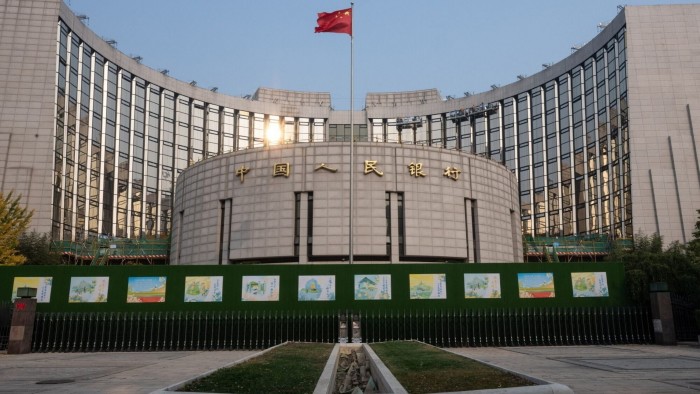Stay informed with free updates
Simply sign up to the Sovereign bonds myFT Digest — delivered directly to your inbox.
China’s short-term sovereign bond yields on Friday dropped to levels last seen during the global financial crisis, as concerns over weak domestic demand bolstered bets that the central bank would further ease monetary policy.
The yield on one-year bonds fell to 0.92 per cent, marking its lowest level since 2009, while 10-year yields dropped 0.03 percentage points to 1.74 per cent after breaching 2 per cent at the start of the month. Bond yields move inversely to prices.
The fall in yields comes after the People’s Bank of China announced one-year and five-year loan prime rates would remain unchanged, reinforcing market expectations for further rate cuts in 2025.
The seven-day reverse repo rate, which the PBoC regards as its main policy tool, currently stands at 1.5 per cent.
The bond-buying frenzy also follows November data on retail sales that fell short of forecasts, while imports last month fell more than expected, heightening concerns over weak domestic demand.
But Wei Li, a portfolio manager at BNP Paribas Asset Management, said that while recent economic data showed domestic consumption still needed a boost, “recent stimulus measures have begun to take effect”.
“Increased demand for treasury bonds from banks and insurance companies at year-end has also contributed to the decline in yields,” he added.
Last week, China loosened its monetary policy stance for the first time in 14 years. It has continued to signal a commitment to boosting the economy and domestic consumption next year, vowing to cut banks’ reserve requirement ratio and interest rates to ensure the market has ample liquidity.
China’s bond market is seen by many analysts as a battleground for expectations over Chinese economic growth, with policymakers viewing lower yields as a negative signal of market expectations for the economy.
In its latest attempt to dissuade local financial institutions from piling into government bonds as a haven, which is contributing to driving down yields, the PBoC on Wednesday summoned some banks that it judged to have engaged in “aggressive” trading of sovereign bonds.
The central bank cautioned them to heed interest rate risks and adopt “prudent” investment behaviour in bonds. It also reiterated its “zero tolerance” towards illegal activities in the bond market, according to Financial News, a PBoC-affiliated publication.
But according to one institution that received the instructions, the PBoC clarified that it would not interfere with “legitimate” investment activities, a more measured tone than in its earlier warning this year of risks akin to the Silicon Valley Bank collapse.
Yields on Chinese sovereign debt across all tenures have declined since the start of the year, as smaller Chinese banks with limited domestic investment options pile into the relatively safe asset.
The 10-year note yielded 2.56 per cent at the start of the year, while the 30-year note yielded 2.84 per cent.
Read the full article here
